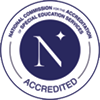 Before adopting two awesome kids who came into my life through the foster care system, I had this idea in my mind that the whole ordeal would be kind of like what happened in Annie. We would just be handed a precocious, well-adjusted child that we would rescue from their dire straits through love and perseverance and possibly a few well-timed choreographic musical numbers. The truth is that it’s infinitely more complicated than that, although it is equally thrilling and wonderful – minus the giant mansion and, sadly, Punjab. We could all use a little Punjab in our lives.
Before adopting two awesome kids who came into my life through the foster care system, I had this idea in my mind that the whole ordeal would be kind of like what happened in Annie. We would just be handed a precocious, well-adjusted child that we would rescue from their dire straits through love and perseverance and possibly a few well-timed choreographic musical numbers. The truth is that it’s infinitely more complicated than that, although it is equally thrilling and wonderful – minus the giant mansion and, sadly, Punjab. We could all use a little Punjab in our lives.
So, if there is someone you know (maybe you?) who is going through – or considering going through – this glorious insanity, here are some things to keep in mind.
1. I am my children’s “real” mother. My husband is their “real” father. People, I know what you mean when you ask who their “real” mother is. I get it. In the minds of a non-adoptive parent, especially a woman who has birthed babies out of her own loins, motherhood means that your ovaries made an egg, which was fertilized and grew within your own womb, and then pushed out of your nether regions. But please understand that biology isn’t the trump card in motherhood. I didn’t give birth to my kids, although not a day goes by that I didn’t wish I could have had that experience. Instead, I met my children when they were toddlers. I worked at my relationship with them – not through biology, but through sheer determination. I became their “real” mother, and even though it didn’t happen at birth, it happened. I am real, we are real, this is real. Really.
2. Their lives and their circumstances are private. A lot of adoptive kids have stories that aren’t easy to tell. I may choose to share some of the details, in broad strokes, but this is their story to tell – if and when they choose to. Most of our close friends and family know the quick and dirty about what our kids’ lives were like before coming to live with us. We’re not ashamed of them and we don’t pretend they grew up in a golden castle with a snow leopard as a pet and had nothing but loving, magical experiences. On the contrary, we accept and recognize their past. We just don’t want to explain it to everyone we meet.
3. Sometimes, we need to do things a little differently. There is no such thing as one size fits all parenting, we all know that. What works for one kid or one family might not work for others. But, sometimes, kids who have come from really awful experiences may need things that kids who don’t come from really awful experiences may not. It’s that simple.
Yeah, you don’t let your kids graze for snacks between meals. That’s awesome, and I’m glad it worked for you. But my kids? Food wasn’t always a constant in their lives, and so providing it is a form of trust. Letting them know it’s always there is important. You put your kid to bed at a certain time and then don’t let them leave their rooms? Okay. But my daughter needs to know that someone is there, because she was left alone so much as a baby. She needs me to lie with her and rub her hair until she falls asleep, even if it takes an hour. And, so, that’s what I do.
At the end of the day, we all want our kids to be happy and healthy and safe. Adoptive parents sometimes take a different path to get there.
4. Kids adopted from foster care aren’t messed up kids. An idea exists about kids in foster care – that they’re completely and totally damaged. They’ll steal from you. They’ll hurt you. They’ll reject your love and ruin your life because they’re just rotten to the core. Someone messed them up, and now they’ll be that way. Forever.
Let’s get real for a moment here. A lot foster children have come from extremely difficult circumstances. Abuse of all kinds, neglect, exposure to drugs both in utero and during their daily lives, squalid conditions – it happened. And those sort of things have a profound effect on kids, even if they were very young when it occurred. Their minds may or may not have memories of what happened, but their bodies always do. Sometimes these circumstances lead to difficulties in their lives – difficulties in forming relationships, difficulties with trust, and, yes, as a result there are sometimes difficulties with behavior.
That being said, there is no such thing as messed up kids – there are just kids that come from messed up places.And that’s where we come in – their adoptive families, friends, communities, schools, churches, neighborhoods. We come in and we love them and we care for them and we do everything we can to make this part of their lives as amazing as we can. We show them their worth, help them learn to trust, and provide the stability that serves as a foundation for healing.
Love works, but not by itself. These kids with messed up circumstances need support, guidance, stability. Sometimes therapy. The road there isn’t always paved with gold and lined with daisies, but the road exists. They just need someone to follow them down it.
5.Nothing is different. Everything is different. Nothing is different. Adoptive families are families, and for the most part we operate in the same way biological families do. Sure, some things are different by design, but we just want to be treated the way we feel – like normal, everyday, crazy, complicated, normal groups of people who love each other. I don’t know of any families that have adopted who introduce their children as “my ADOPTED son….” or “my former foster child, now adopted…” Please don’t ever introduce us as such.
6. You can’t replace relationships. Not ever. This has been one of the hardest things for me to accept. Subconciously, I viewed myself as a replacement Mom to my kids. Oh, that lady who used to be your Mom? She didn’t do a good job, so I’m here now, and I love you, and it’s all good! But it’s not that simple. I can’t ever replace the woman who gave birth to my children, and I don’t want to. No matter what happened, no matter how things were, she is the woman they bonded to when they first entered the world. She is the woman who gave them life. I am not her substitute, I am not her replacement. I am the mother who continued to give them life, who nurtured them next, who will see them into their future. And that is enough.
7. Adoption is born of loss. As wonderful and beautiful and amazing as adoption is, it starts with a loss, especially in foster care. A mother and father lost their children. Grandparents lost their grandchildren. Siblings are separated. My children lost countless family members, most of whom they will never see again.
Early on, I let anger rob me of my empathy. It was their birth mother’s fault that she lost her kids, why should I feel sorry? If any of those family members wanted the kids, they would have stepped up to the plate and taken custody, why should I feel sorry? The truth is that it’s always more complicated than that, and assigning blame might feel good in the moment, but ultimately it will just crush all the good we’ve worked so hard to build up. As a mother, I feel like I want to claw the eyes out of anyone who has ever hurt my kids. As a human being, I know that forgiveness is about letting go, recognizing the loss, and working to heal it.
8. This is work. Imagine if the moment that you met a new person – literally, the first moment you laid eyes on them – you were expected to live with them, trust them, rely on them for your every need, respect them, bond with them emotionally, and follow their rules. This is what children in care go through when they’re placed in a new foster home.
As adults, we don’t build relationships that way, not even friendships. We start small – “Hey, let’s get a coffee!” and then we get to know each other before we care, trust, and love. Kids in care don’t get that luxury. They are thrust head first into new places, with new people, new rules. Sometimes they’re in a new town. They sleep in unfamiliar beds in unfamiliar houses and eat unfamiliar breakfasts at unfamiliar places.
I get chills when I think about how terrifying that must have been for my kids, the first night they spent our home. It takes work to build trust, especially with kids who are scared, alone, and confused. You are strangers, in a strange world. They have no reason to depend on you, and every reason not to. As new foster parents, our kids were just as foreign to us as we were to them. We didn’t know them. We spend so much time worrying about their health and safety, shuttling them to doctors appointments and therapy and speech evaluations. We introduced ourselves by our first names.
And so we worked. We worked on building a relationship. We got to know the kids; what they liked and didn’t like, what they needed, who they were. We continue to work – to iron out the kinks that hold them back emotionally, to prove to them that they are safe and loved. We will always work.
9. You are important in our children’s lives. Yes, you. You, and everyone around you are essential in the upbringing of kids who have come from care. Every single person they meet will have an impact on them, positively or negatively. See, when kids are just learning to trust and love and be comfortable again, every single person they encounter can have a profound effect. Thanks for being so awesome.
10. You can do this too. Promise. I can’t tell you how many people have told my husband and I that they admire what they do, but could never do it. And to each and every person who has said that, my response has been the same: sure you could. Being a foster parent or an adoptive foster parent is, at its core, very simple. Anyone who has ever parented has already done what you need to do. Can you make a kid feel safe? Provide for them? Care for them? Advocate for them?
There are over half a million kids in foster care across this country this year, and not enough families to take them in. Chances are that you have what it takes, you just don’t know it yet. Choose to make a child’s life extraordinary. Be a foster parent.







